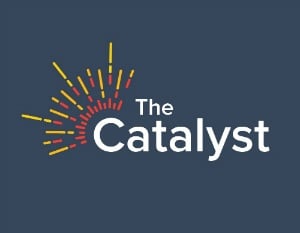While all eyes and ears are focused on COVID-19 and beating this pandemic, the administration has pursued harmful policy changes that we can’t let slip under the radar. In two back-to-back regulatory actions in recent months, the administration has taken steps to make it harder for biopharmaceutical manufacturers to offer assistance to commercially insured patients. Why do these changes matter? Both could lead to patients being forced to pay more out of pocket for their medicines in the middle of a public health and economic crisis, when we should be doing the exact opposite - finding ways to lower costs for patients.
- First Action: 2021 Notice of Benefit and Payment Parameters (NBPP) Final Rule. The administration included a policy change in this final rule – a complete reversal from a policy finalized last year – that allows commercial market health plans to exclude the value of manufacturer cost-sharing assistance from counting toward patients’ out-of-pocket maximums, a practice called accumulator adjustment programs. This policy could result in patients shouldering a larger out-of-pocket cost burden for their medicines and, therefore, discontinuing treatment. The use of accumulator adjustment programs is one of the latest schemes health plans are using to avoid working like real insurance, forcing patients to pick up more of the tab even when they have insurance. And while the administration claimed that increased use of accumulator adjustment programs would be unlikely to result from the 2021 NBPP, the Business Group on Health’s just-released annual Health Care Strategy and Plan Design Survey found that nearly 50% of large employers plan to implement copay accumulator programs in 2021 to block the impact of manufacturer cost-sharing assistance, up from 39% using them in 2020.”
- Second Action: Medicaid Proposed Rule. The administration is proposing yet another way to make it more difficult for manufacturers to offer assistance to patients. Currently, manufacturer cost-sharing assistance can be exempted from provisions in Medicaid which are used to determine manufacturer rebates paid to Medicaid programs. Such assistance can be exempted because cost-sharing assistance is provided to patients not health plans or other third parties. The administration is now proposing that manufacturers must “ensure” that this assistance is provided entirely to patients. Unfortunately, through accumulator adjustment programs, health plans can misappropriate patient assistance – a practice ironically supported by the administration’s 2021 NBPP final rule. Therefore, it is very difficult if not impossible for manufacturers to either know about or prevent health plans from misappropriating patient assistance in this way. If the proposal is finalized, the value of the patient assistance will become a part of the calculation of the manufacturer’s Medicaid rebate, likely increasing the amount the manufacturer owes. Requiring this of manufacturers, despite health plans being the ones that interfere with patient assistance, ignores how manufacturer assistance works and would effectively penalize manufacturers that provide assistance to help patients pay their out-of-pocket costs for medicines.
No one should struggle to afford their medicines, yet more and more Americans are facing higher out-of-pocket costs as a result of changes in insurance benefit design. To truly fix the system and address patient affordability challenges, we need long-term solutions like lowering patient cost sharing, reforming the rebate system, and requiring plans to count cost-sharing assistance toward deductibles and out-of-pocket limits rather than excluding it from these calculations. In the meantime, biopharmaceutical manufacturers have stepped up to help patients by providing a broad range of patient assistance in the form of coupons, refund / rebate programs, and cost-sharing assistance directly to patients to use when they pick up their medicines at the pharmacy counter.
Studies have shown that low out-of-pocket costs are associated with improved medicine adherence, which is critical to help ensure better health outcomes. In fact, in 2017, 69% of commercially insured patients did not fill a new prescription when out-of-pocket costs exceeded $250. Conversely, less than 15% of patients abandoned their prescriptions when out-of-pocket costs were under $30. And for some patients, patient assistance programs can make the difference between whether a patient picks up a medicine or not. A recent analysis, for example, found that chronically ill patients who used manufacturer cost-sharing assistance in 2019 saved hundreds to thousands of dollars on their out-of-pocket costs.
Rather than rushing to advance policies that could ultimately increase patients’ financial burdens, the administration should fully consider the negative impacts these changes could have of patients and stop their assault on cost-sharing assistance.



